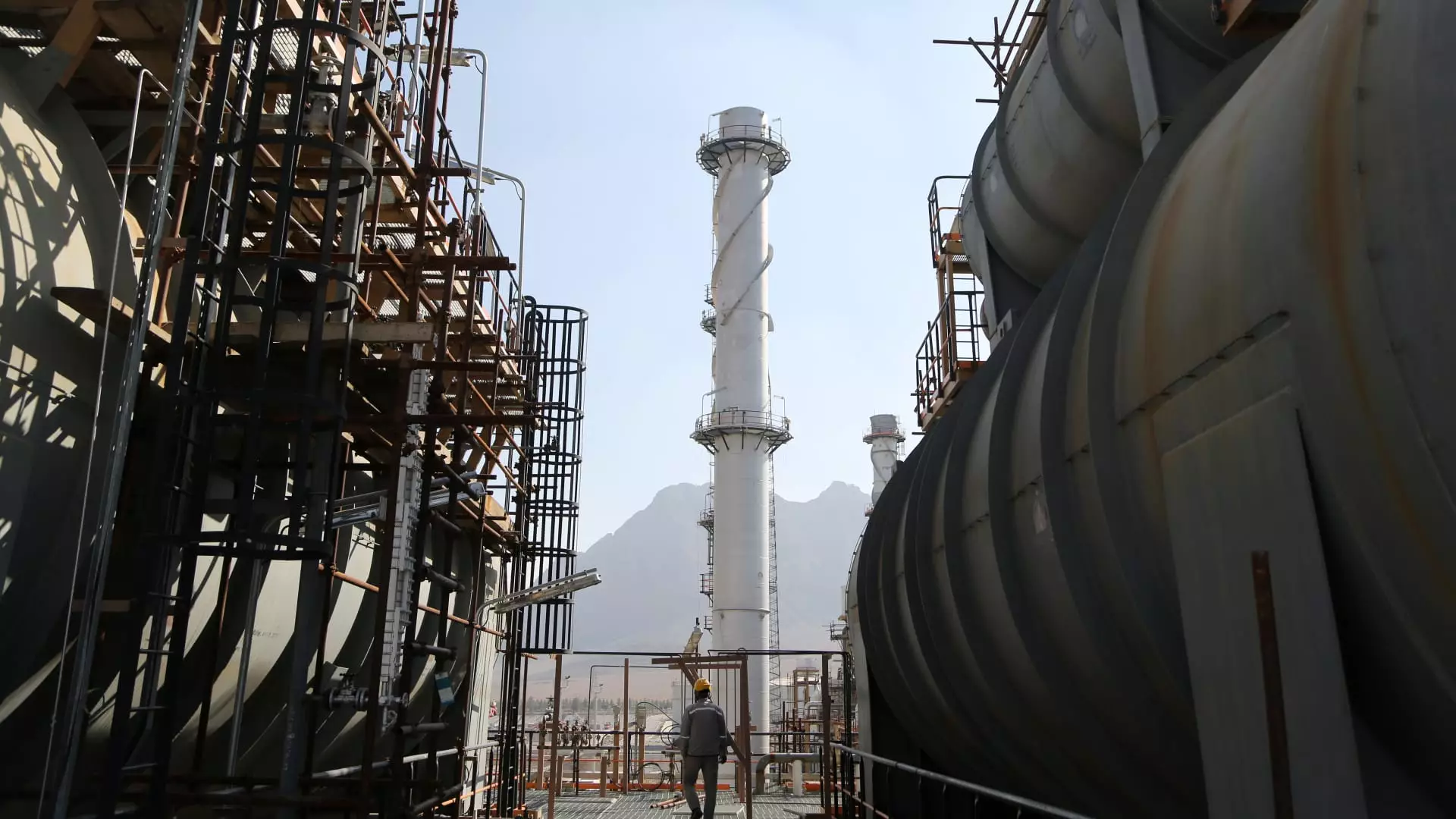The recent missile attack launched by Iran against Israel marks a serious escalation in the ongoing conflict in the Middle East, introducing new concerns for global crude oil supplies. This confrontation has drawn increased attention from oil market analysts, who are closely monitoring the ramifications of both Iran’s retaliatory actions and Israel’s potential military response. The realities of geopolitical risk in the region, which had waned slightly over time, are suddenly at the forefront, igniting discussions about the viability and reliability of crude oil supplies.
Iran’s missile strike serves as a powerful statement, responding to the targeted killings of significant figures within its military and allies, specifically the deaths of Hezbollah leader Hassan Nasrallah and an Iranian commander in Lebanon. The potential for Israel to retaliate by targeting Iranian oil infrastructure stands as a key concern. Saul Kavonic, a senior energy analyst, articulated this risk, emphasizing that “the scope for a material disruption to oil supply is now imminent.” With the Middle Eastern conflict now tightening around Iran, investor anxiety is palpable, and the fear of supply shortages looms large.
As tensions escalate, oil prices have responded with notable volatility. Following the missile launch, Brent crude—an international benchmark—rose significantly before settling at approximately $74.62 per barrel, with West Texas Intermediate also demonstrating upward momentum. This market reaction underscores the interconnectedness of geopolitical events and commodities markets, with analysts predicting that further escalations could potentially push oil prices back to the psychologically significant $100 per barrel mark. Such fluctuations not only impact traders but also have far-reaching implications for global consumers and economies dependent on stable oil supplies.
Despite the immediate uptick in prices, some experts caution against overstating the current crisis’s immediate impact on oil market disruptions. Andy Lipow from Lipow Oil Associates pointed out that the overall oil supply chain remains robust, buoyed by increased production from US suppliers and somewhat tepid demand from major consumers such as China. These dynamics indicate that while the geopolitical tension is severe, the capacity for significant disruptions may still be mitigated by existing supply levels, at least in the short term.
As military action in the region becomes more pronounced, the potential for a broader conflict involving key oil-producing nations increases. Observers note that Iran is one of the largest producers within the Organization of the Petroleum Exporting Countries (OPEC), generating nearly four million barrels of oil per day. This production level highlights the magnitude of the risk associated with any disruptions stemming from escalated military confrontations. Bob McNally from Rapidan Energy Group pointed out that this recent phase of conflict is likely to have energy-related consequences that were not seen previously, marking a shift that could have lasting impacts on global energy markets.
Risk assessments like those from GeoQuant are beginning to paint a more alarming picture, indicating that the situation may soon escalate beyond current expectations. The significant uptick in political risk scores following the missile strikes suggests that analysts are increasingly wary, anticipating “much bigger events” that could destabilize oil supply chains even further.
As the geopolitical landscape in the Middle East continues to evolve, the interplay between military actions and oil supplies will remain a central focus for traders and policymakers alike. Analysts are urging caution while projecting a sustained vigilance as the likelihood of significant escalations increases. With oil trading as a reflection of both immediate threats and longer-term risks, the market appears poised for continued fluctuations. Stakeholders must be prepared not only for potential price surges resulting from disruptions but also for the broader economic consequences they entail. As history illustrates, the oil market remains intrinsically linked to geopolitical stability, and the current tensions underscore a pivotal moment in navigating these inherent risks.

Leave a Reply